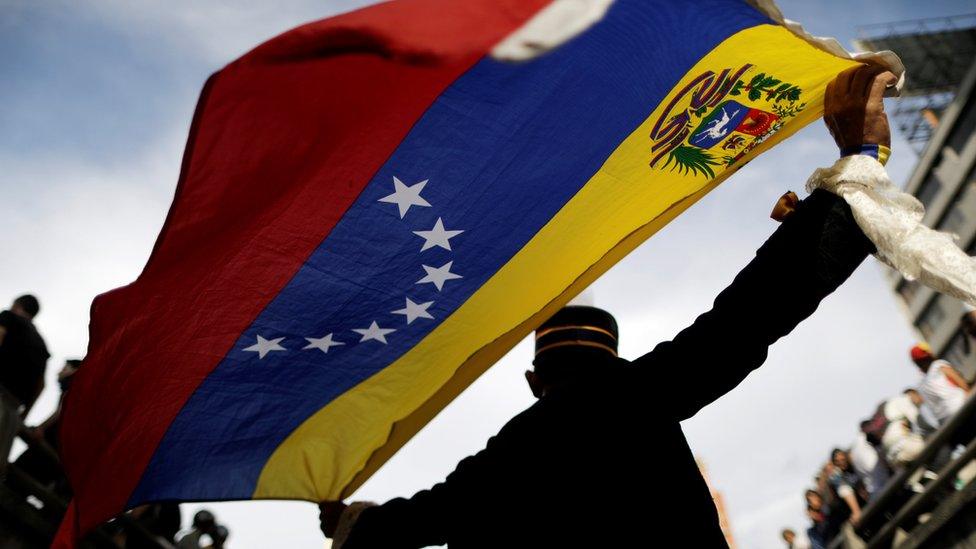Venezuela's parliamentary poll: Five things you need to know
- Published
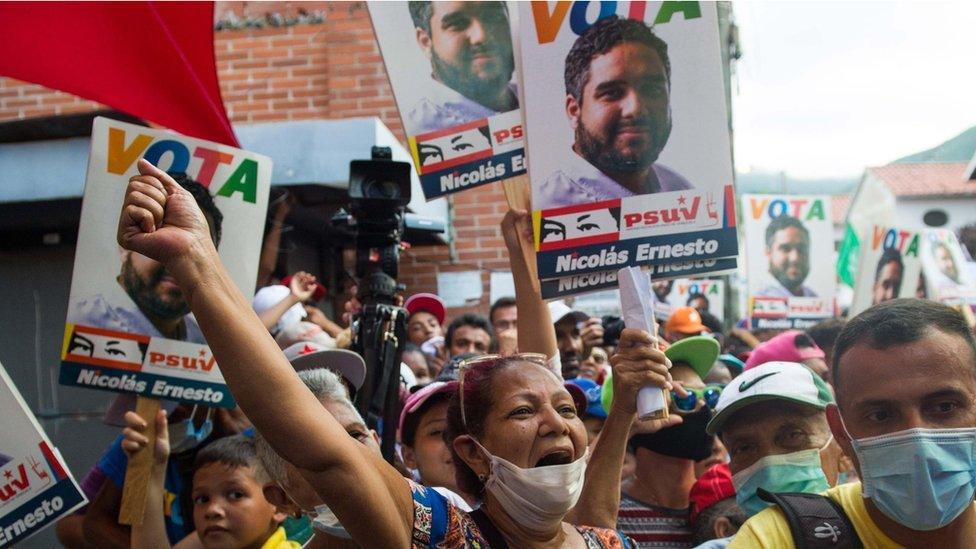
President Maduro's son, Nicolás Ernesto, is among the pro-government candidates in the running
Venezuelans will choose 277 members of the National Assembly on Sunday in an election which is being boycotted by most opposition parties, who have denounced it as a "fraud".
The election comes amid a two-year power struggle between sitting President Nicolás Maduro and opposition leader Juan Guaidó.
Following Mr Maduro's re-election in the 2018 presidential ballot, which was widely dismissed as "neither free nor fair", Mr Guaidó was recognised as "interim president" by the National Assembly, the US and more than 50 other nations.
The National Assembly, with Mr Guaidó at its helm, is the only institution not controlled by Mr Maduro's socialist PSUV party, but that is expected to change in this election.
On Sunday US Secretary of State Mike Pompeo described the elections as a "fraud and a sham", external.
"The results announced by the illegitimate Maduro regime will not reflect the will of the Venezuelan people," he tweeted.
Here are five things you need to know about Sunday's vote.
1. A one-sided affair
Mr Maduro's Gran Polo Patriótico (Great Patriotic Pole), backed by state resources and government media, has actively campaigned on a promise to "win back" the National Assembly which, since the last parliamentary vote in December 2015, has been controlled by a lawmakers opposed to the socialist leader.
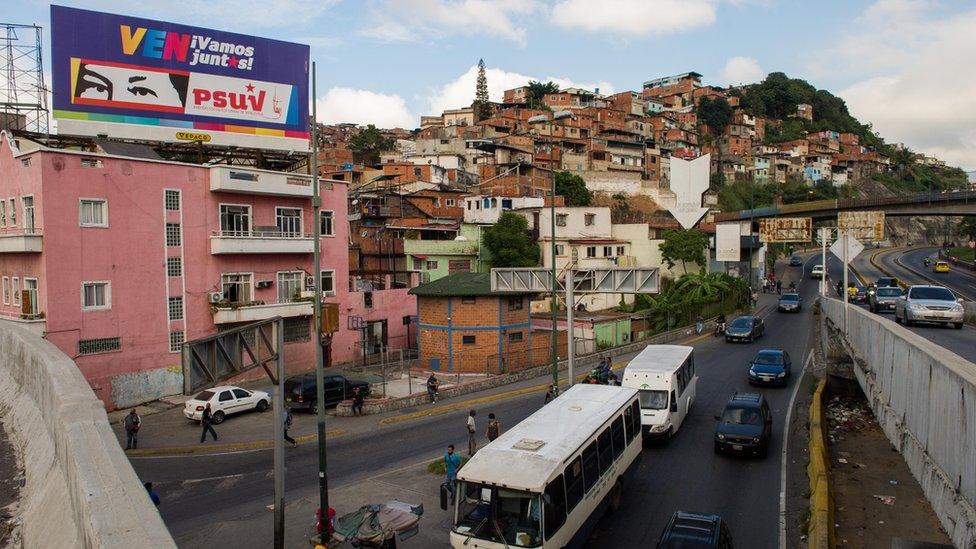
Many election posters for Mr Maduro's party depict the eyes of late President Hugo Chávez
Mr Maduro's coalition is widely expected to win a majority in the National Assembly because the main opposition parties supporting Mr Guaidó are boycotting the vote.
The parties loyal to Mr Guaidó took that decision because both the electoral authorities and Venezuela's Supreme Court are staffed by Maduro loyalists. They argue that if they were to take part, the result would be rigged in favour of Mr Maduro's party and they therefore prefer not to "lend the election legitimacy" by taking part.
Despite the boycott by the Guaidó-led opposition, a number of opposition parties are standing. Some are what is left of traditional opposition parties which had their leadership removed by the Supreme Court for backing the boycott. These parties had a new government-friendly leadership imposed on them which then changed course and announced they would take part in the National Assembly election after all.
There is also a party, the Popular Revolutionary Alternative (APR), which broke away from the government coalition and which is opposing Mr Maduro from the left.
Whatever the outcome of the election, Mr Guaidó has already announced that he will hold a "popular consultation", a kind of referendum, in which he will ask Venezuelans whether they accept the results of the National Assembly election.
Reports from Venezuela indicate that voters' interest in the National Assembly election is low, and turnout is expected to reflect this. A recent opinion poll found that 62.2% of Venezuelans "do not support" either Mr Maduro or Mr Guaidó.
2. Questions over legitimacy
The EU, the US and the Organization of American States (OAS) have all said the elections do not comply with acceptable standards of democratic transparency and so they will not consider their outcome as legitimate.
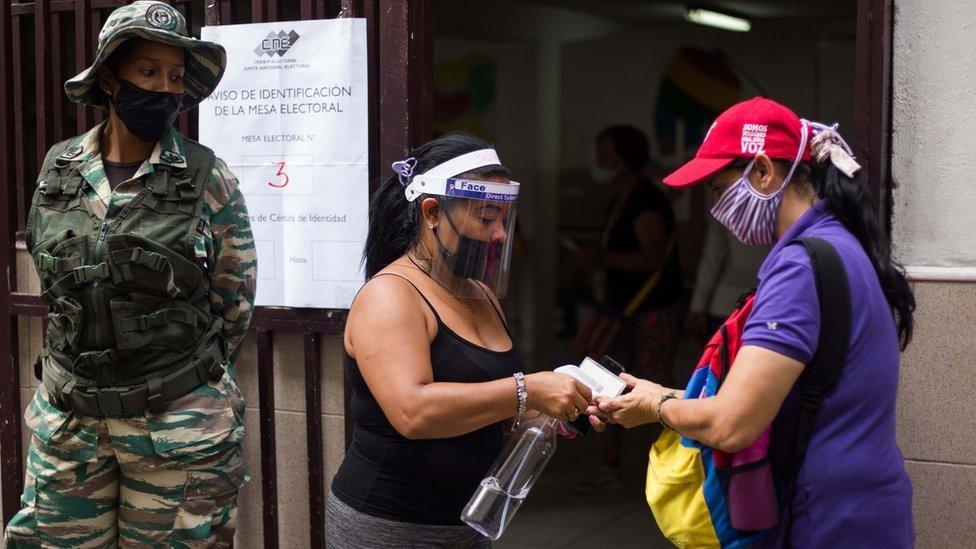
The parliamentary elections are being held in the midst of health precautions due to Covid-19
A significant group of Latin American and Caribbean nations, including US allies such as Brazil and Colombia, will follow this lead and not recognise the election result.
However, a pro-Maduro parliament emerging from the elections is likely to be recognised by Maduro allies such as Russia, China, Turkey and Iran, as well as by Cuba and Nicaragua.
In the US, President-elect Joe Biden, who has made clear he views Mr Maduro as a "dictator", seems unlikely to break with the Trump administration's view of these Venezuelan elections as "undemocratic".
It is expected that once he is president, Mr Biden will seek a wider international consensus to put pressure on the Maduro government.
3. Consolidation of power
If, as appears likely, Mr Maduro succeeds in wresting control of the National Assembly from the Guaidó-led opposition, he is expected to use it to pass legislation that further bolsters his political and economic control over Venezuela. The pro-Maduro candidates in the running include his wife and son.
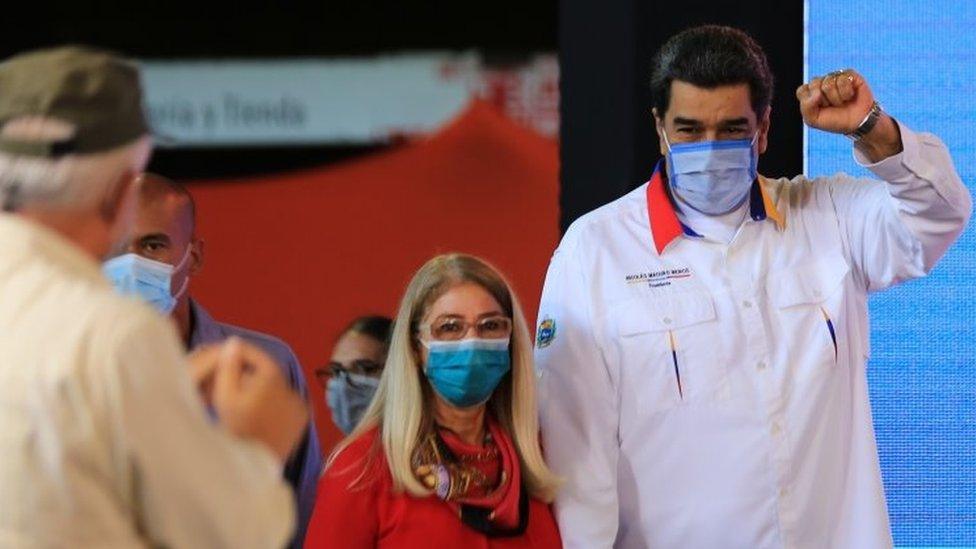
Nicolás Maduro's wife, Cilia Flores, is standing in the election
A top official in the Maduro government, Diosdado Cabello, has been saying that the first law to be passed by the new Assembly "after the revolutionary victory of 6 December" will be one that punishes "the traitors" - an apparent reference to Mr Guaidó and other opposition politicians.
For his part, Maduro, while confidently predicting a victory in the elections for his "Bolivarian Revolution", has said he will leave the presidency "if the opposition wins more votes than us"
4. Divisions in the opposition
Mr Guaidó has in recent months faced questions from within the anti-Maduro movement about his strategies, including his decision to boycott the elections.
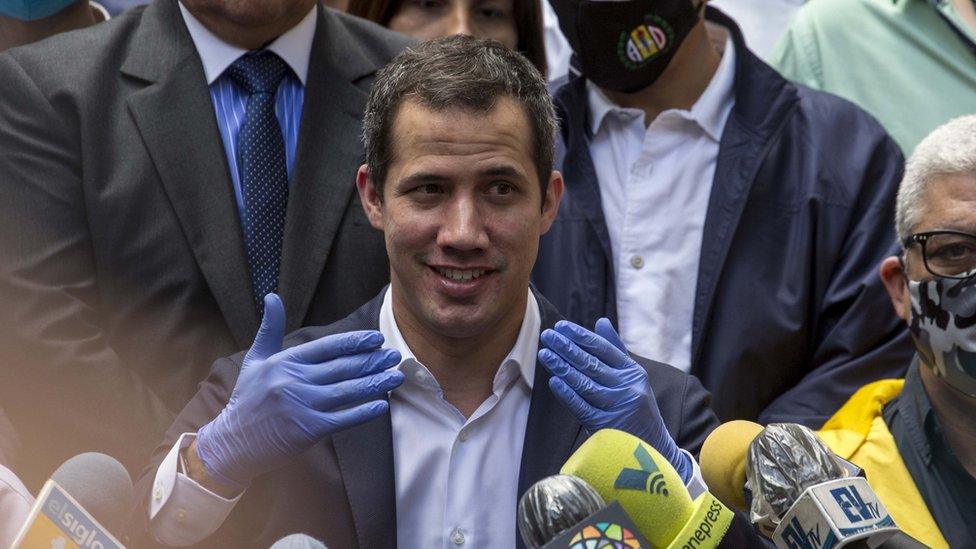
Opposition leader Juan Guaidó has called for a boycott of the vote he calls a 'farce'
His recognition as "interim president" was based on his position as head of the National Assembly.
He and his supporters in the National Assembly cited a passage in the constitution which states that the leader of the legislature should step in if the presidency is left vacant.
Arguing that the 2018 re-election of Mr Maduro had been illegitimate and that the presidency was therefore vacant, Mr Guaidó - with the support of the National Assembly - swore himself in as interim president in January 2019.
But this mandate is due to expire on 5 January when the new assembly is due to take power. However, Mr Guaidó and his supporters argue that because the 6 December election is not "free and fair", whoever succeeds him will not have legitimacy and he plans to continue in his post. Nevertheless, questions about his position are likely to be raised.
5. No solution to political impasse
If Mr Maduro and his supporters regain control of the National Assembly, this will harden existing positions for and against his left-wing government, both domestically and internationally.
Excluded from the country's institutions, opponents of Mr Maduro will be forced to look outside of these for ways to end his presidency.
This could lead to increased tensions and renewed confrontation.
BBC Monitoring, external reports and analyses news from TV, radio, web and print media around the world. You can follow BBC Monitoring on Twitter, external and Facebook, external.

You may be interested in:
Venezuelan opposition figure Leopoldo López explains why he left his home country
Related topics
- Published24 October 2020
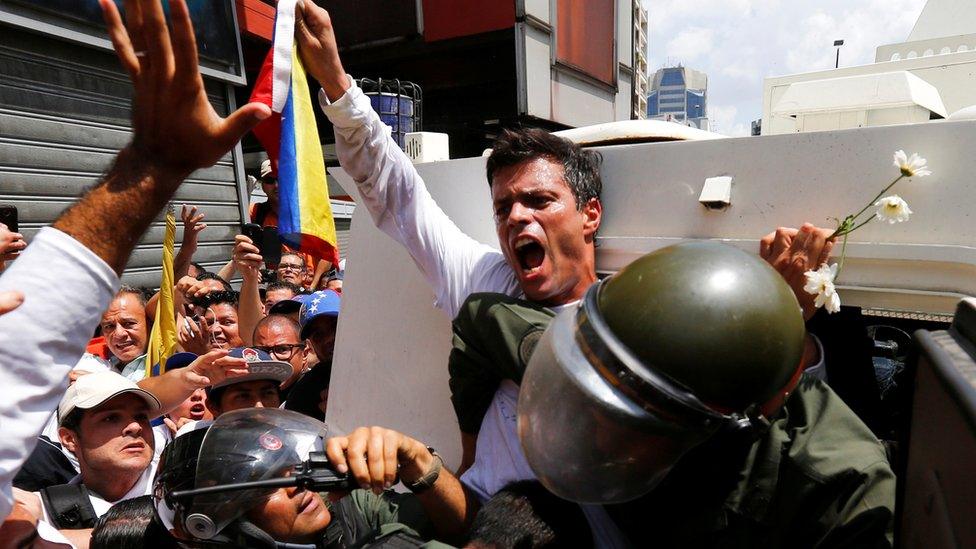
- Published5 October 2020
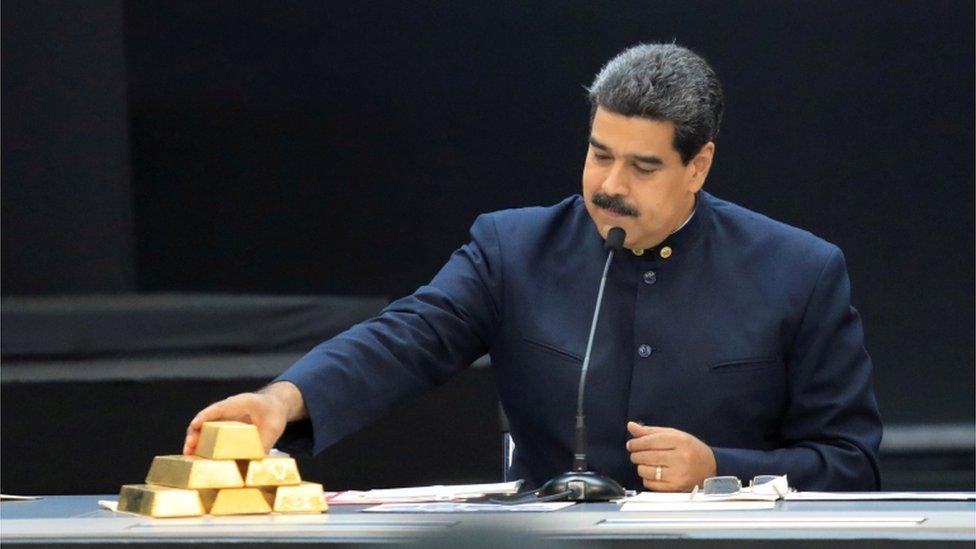
- Published27 November 2020

- Published16 September 2020
